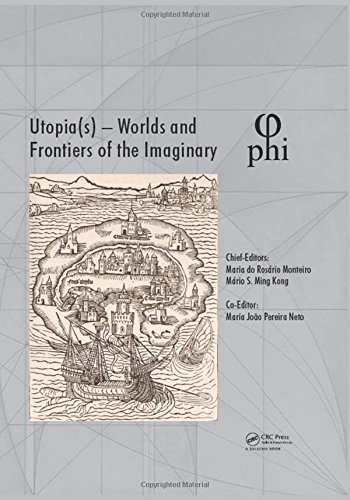

Most ebook files are in PDF format, so you can easily read them using various software such as Foxit Reader or directly on the Google Chrome browser.
Some ebook files are released by publishers in other formats such as .awz, .mobi, .epub, .fb2, etc. You may need to install specific software to read these formats on mobile/PC, such as Calibre.
Please read the tutorial at this link: https://ebookbell.com/faq
We offer FREE conversion to the popular formats you request; however, this may take some time. Therefore, right after payment, please email us, and we will try to provide the service as quickly as possible.
For some exceptional file formats or broken links (if any), please refrain from opening any disputes. Instead, email us first, and we will try to assist within a maximum of 6 hours.
EbookBell Team

0.0
0 reviewsThe idea of Utopia springs from a natural desire of transformation, of evolution pertaining to humankind and, therefore, one can find expressions of “utopian” desire in every civilization. Having to do explicitly with human condition, Utopia accompanies closely cultural evolution, almost as a symbiotic organism. Maintaining its roots deeply attached to ancient myths, utopian expression followed, and sometimes preceded cultural transformation.
Through the next almost five hundred pages (virtually one for each year since Utopia was published) researchers in the fields of Architecture and Urbanism, Arts and Humanities present the results of their studies within the different areas of expertise under the umbrella of Utopia. Past, present, and future come together in one book. They do not offer their readers any golden key. Many questions will remain unanswered, as they should.
The texts presented in Proportion Harmonies and Identities - UTOPIA(S) WORLDS AND FRONTIERS OF THE IMAGINARY were compiled with the intent to establish a platform for the presentation, interaction and dissemination of researches. It aims also to foster the awareness and discussion on the topics of Harmony and Proportion with a focus on different utopian visions and readings relevant to the arts, sciences and humanities and their importance and benefits for the community at large.